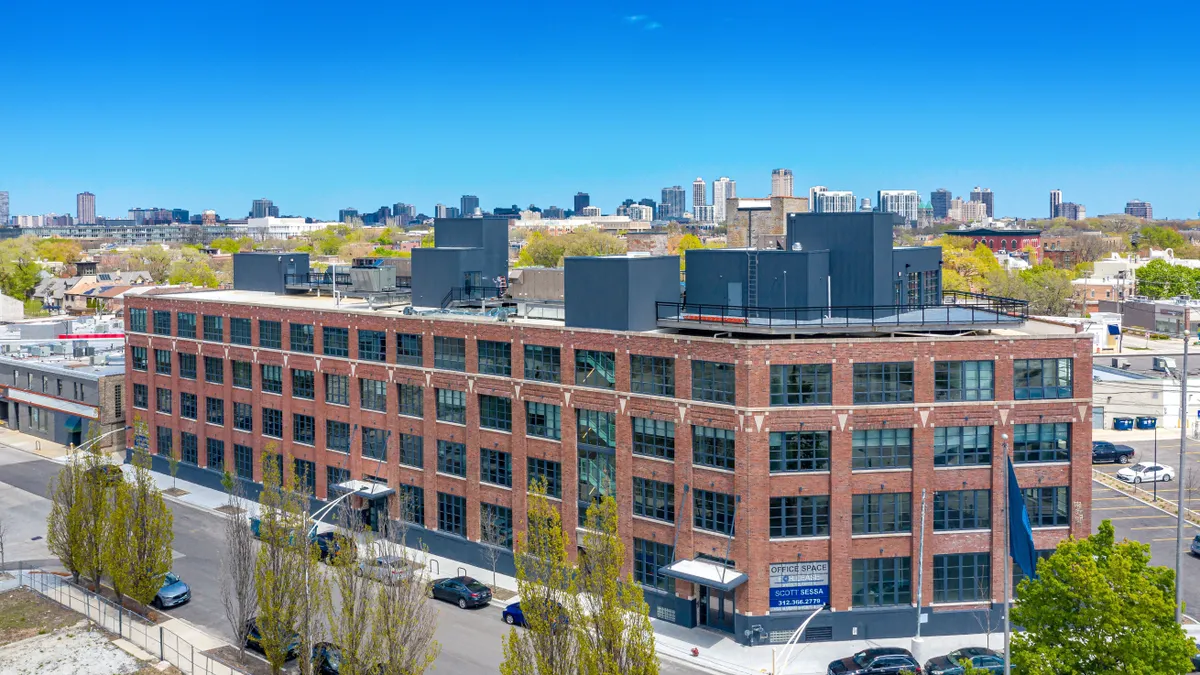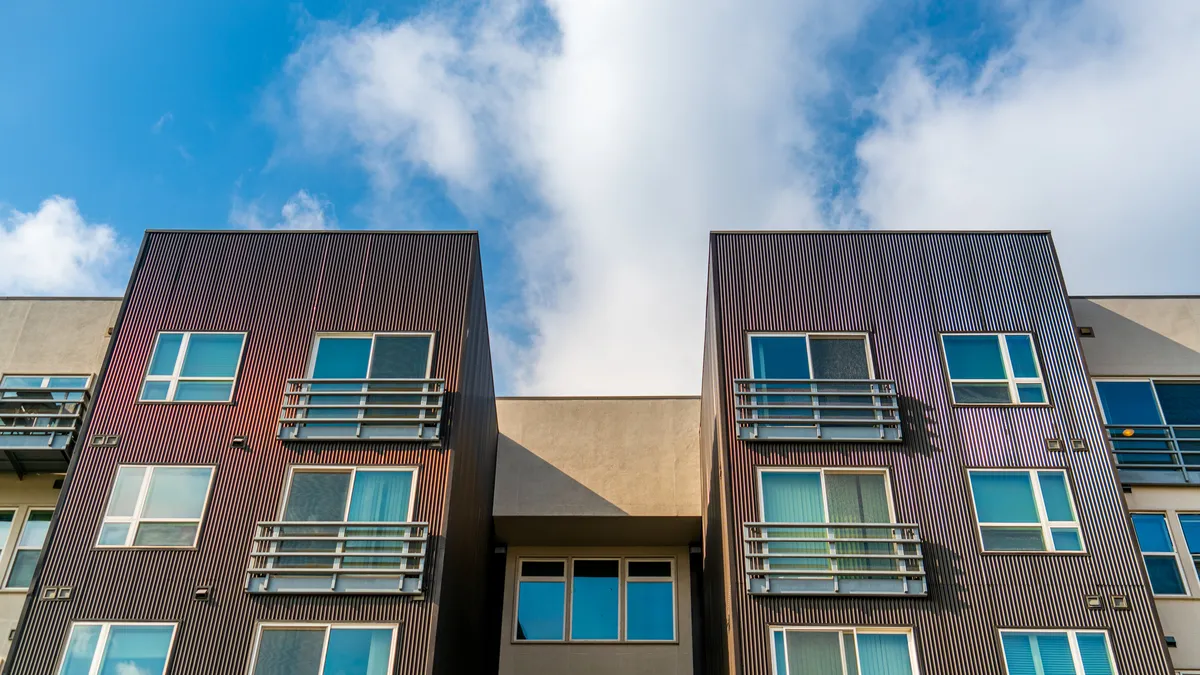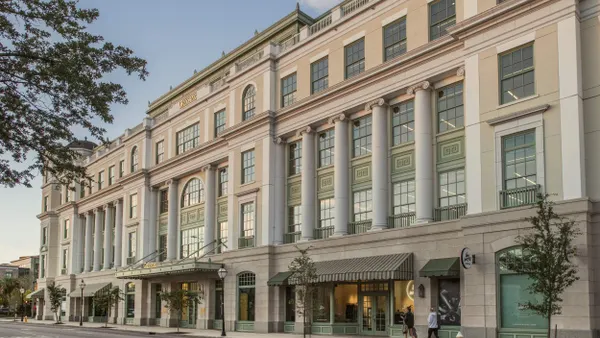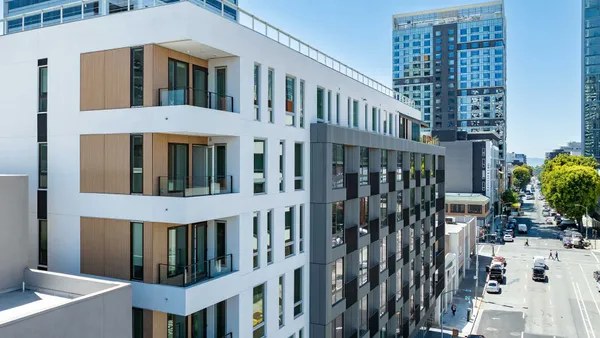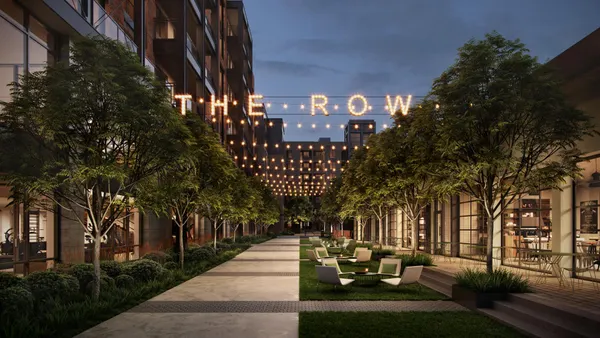Twenty-five years ago, Mike Zucker started Peak Properties in the basement of an old building. Over the years, through hard work, determination and networking, he built a company with 150 employees and 8,000 units in Chicago.
Peak, not to be confused with Atlanta-based student housing operator PeakMade Real Estate, has a 10% to 15% interest in most of the properties it manages. The company’s partners are generally family offices or high-net-worth individuals. And, a lot of its properties are near Chicago-area schools, like Loyola [University Chicago], DePaul University, the University of Chicago and Northwestern.
“And then we have a lot of traditional multifamily housing mostly in the North Side of the city and a lot in the popular part of the South Side of the city,” Zucker told Multifamily Dive.
Following the global financial crisis of 2007-2009, Peak did “an inordinate amount” of work with properties in receivership. “I try to bob and weave and work exceptionally hard through crises,” he said. “I was around for the 2001 internet crash, the financial crisis and the COVID-19 crisis. Every seven to 10 years, some sort of crisis comes along.”
Here, Zucker talks with Multifamily Dive about financial challenges, resident retention and the labor situation.
This interview has been edited for brevity and clarity.
MULTIFAMILY DIVE: Do you think there is another crisis on the horizon in the next year or so? If so, who will get hurt?
Smart debt and smart interest rates rule the day. So if you refinanced your building in 2021 or 2022 and got 3.5% for 10 years, I think you’re fine. If you are some of the groups that refinanced out of their investment plus another $1 million or $2 million and they’re nonrecourse, one would consider that to be smart.
What do you think will happen with rents in Chicago this year?
Rent will moderate, and we will not be able to push rents as much as we were. Everyone is very conscious of turnover because of the cost of turnover. You have to pay a rental agency fee, you have to pay for marketing and there are turnover costs. If you can retain that person by going up 3% versus 8%, that's a lot better.
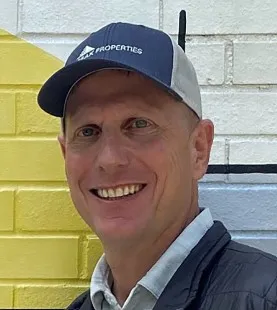
Ultimately, you have to ask yourself: Are you NOI driven, or are you cash driven? What's your long-term goal when you buy a building together?
If we own a 12-unit building, we might only raise a person’s rent by $25. It’s only 2%, but it will cost us $5,000 if she moves. The building might be going to our kids. The $2,000 loss of rent isn’t going to move our needle that much.
What is your biggest challenge?
One of my biggest concerns right now is labor. There's a huge labor shortage. Sometimes I try to build my bench where I'm willing to overpay and have some extra people on staff should somebody leave. Our turnover isn't that high.
I don't just look at our employees. I look at all the contractors that we keep busy too, which is 250 people. So I take care of 400 people, including myself. I go to work every day and think about those 399 people, their families and how they’re going to put food on their table and make a living. The moves that we're making are hopefully good ones. We're trying to build a brand, build a culture and make people feel comfortable.
Have you developed properties before?
In a previous life, we did some new stuff. It was right around the crash, and we survived the financial crisis. I know some people that just dove right back in. There's a famous saying that developers have short memories. But I was only a part-time developer. So I have kind of a long memory.
Click here to sign up to receive multifamily and apartment news like this article in your inbox every weekday.



